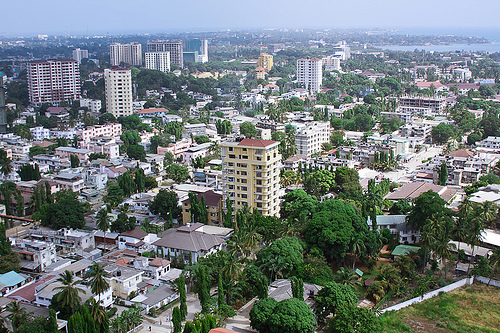Paul Collier on Housing Policy in Africa
+ Brandon Fuller
As the populations of cities in the developing world grow, the cities themselves will sprawl outward. But “sprawl” in this context doesn’t need to become a dirty word.
My colleague Solly Angel estimates that, in the year 2000, average urban density was 23 people per hectare (p/ha) in land-rich developed countries like the U.S. Because the density threshold is estimated to be 50 p/ha for metro service and 30 p/ha for bus service, there’s a reasonable case to be made that American cities should densify. But at 136 p/ha in the year 2000, it’s safe to say that average urban density is far higher in the developing world. In many cases, urban density can therefore decline sharply without posing a threat to sustainable forms of transportation.

Indeed, as a recent editorial in the Tanzania Daily News makes clear, concerns about too much density in the developing world will often loom much larger than those about too little. Where overcrowding creates health and safety hazards, the authors find the benefits of declining density to be quite large:
The piece mentions Paul Collier’s call for the abolition of the Town and Country Planning Act of 1947 in former British colonies. Collier has written about the Act before, arguing that it brings with it building standards and minimum plot sizes that are far too high given current income levels in Sub-Saharan Africa. Enforcement of the Act makes formal housing inaccessible for the poor, pushing large numbers of urban newcomers into informal housing developments where overcrowding and the lack of sanitation tend to be most pronounced.
The construction of healthy and affordable housing will require realistic building regulations and sufficient room for urban expansion, both of which can coexist with the viability of mass transit in the cities of the developing world.

